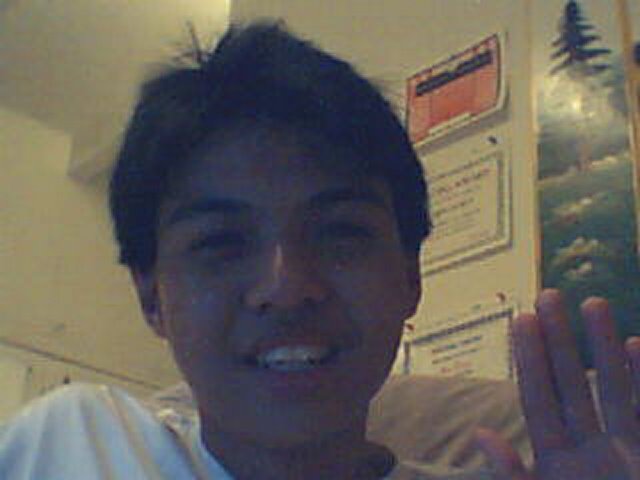The awards season is officially over! A few hours ago, Clint Eastwood's boxing drama emerged as the winner of Best Picture along with Best Actress (Hilary Swank), Best Supporting Actor (Morgan Freeman) and Best Director for Eastwood. However, The Aviator-which led the roster with 11 nominations-was still the big frontrunner in the ceremony with 5 statuettes, including Best Supporting Actress for Cate Blanchett's accurate portrayal of the late thespian Katharine Hepburn as well as for Best Cinematography, Best Film Editing, Best Art Direction, and Best Costume Design. Poor Martin Scorsese, once again, he gets snubbed by the Academy just as he was so close to victory! He now holds a 0-5 win-loss record in the Best Director category, which he shares with Alfred Hitchcock and Robert Altman. What's interesting about the results was that every Best Picture nominee won in at least one category (its been a while since that happen). Aside from the awards won by Million Dollar Baby and The Aviator, the comedy Sideways won for best adapted screenplay, Finding Neverland won best score, and even Ray managed to win another award beyond the already-assured Best Actor win for Jamie Foxx (it won for sound). Chris Rock was surprisingly good in his first gig as host, I especially laughed when he likened USA invading Iraq to Gap invading Banana Republic. And although I was a bit skeptical a bit earlier about the changes planned for the show (like the way they hand out the awards from the audience), I thought it was still executed very well. Anyway, let's see how accurate my predictions fared in (Asterisks denote a win, in some cases, the real winner is enclosed in parenthesis):
Best Picture
Will/should win: The Aviator (Million Dollar Baby)
Best Actor
Will win: Jamie Foxx, Ray (*)
Should win: Johnny Depp, Finding Neverland
Honorary mention: Leonardo DiCaprio, The Aviator
Best Actress
Will win: Hilary Swank, Million Dollar Baby (*)
Should win: Kate Winslet, Eternal Sunshine of the Spotless Mind
Best Supporting Actor
Will/should win: Morgan Freeman, Million Dollar Baby (*)
Best Supporting Actress
Will/should win: Natalie Portman, Closer
Honorary mention: Cate Blanchett, The Aviator (*)
Best Director
Will/should win: Martin Scorsese, The Aviator (Clint Eastwood, Million Dollar Baby)
Best Original Screenplay
Will/should win: Eternal Sunshine of the Spotless Mind (*)
Honorary mention: The Aviator
Best Adapted Screenplay
Will win: Sideways (*)
Should win: Finding Neverland
Honorary mention: Before Sunset
Best Foreign Language Film
Will/should win: The Sea Inside, Spain (*)
Best Animated Feature
Will/should win: The Incredibles (*)
Best Original Score
Will win: Jan A.P. Kaczmarek, Finding Neverland (*)
Should win: Thomas Newman, Lemony Snicket's A Series of Unfortunate Events
Honorary mention: John Debney, The Passion of the Christ
Best Original Song
Will win: "Accidentally In Love", Shrek 2
Should win: "Learn To Be Lonely", The Phantom of the Opera
Honorary mention: "Believe", The Polar Express
(The real winner: "At Otro Lado Del Rio", The Motorcycle Diaries)
Best Cinematography
Will win: The Aviator (*)
Should win: The Passion of the Christ
Honorary mention: House of Flying Daggers
Best Film Editing
Will/should win: The Aviator (*)
Honorary mention: Collateral
Best Sound Mixing
Will win: The Aviator
Should win: The Polar Express
Honorary mention: Spider-Man 2
(The real winner: Ray)
Best Sound Editing
Will win: Spider-Man 2
Should win: The Polar Express
(The real winner: The Incredibles)
Best Art Direction
Will win: The Phantom of the Opera
Should win: Lemony Snicket's A Series of Unfortunate Events
Honorary mention: The Aviator (*)
Best Costume Design
Will win: The Aviator (*)
Should win: Finding Neverland
Honorary mention: Lemony Snicket's A Series of Unfortunate Events
Best Makeup
Will win: The Passion of the Christ
Should win: Lemony Snicket's A Series of Unfortunate Events (*)
Best Visual Effects
Will/should win: Spider-Man 2 (*)
Best Documentary Feature
Will/should win: Super Size Me (Born into Brothels)

